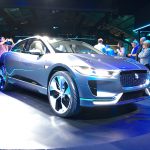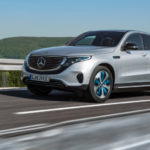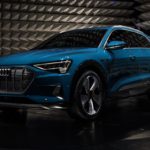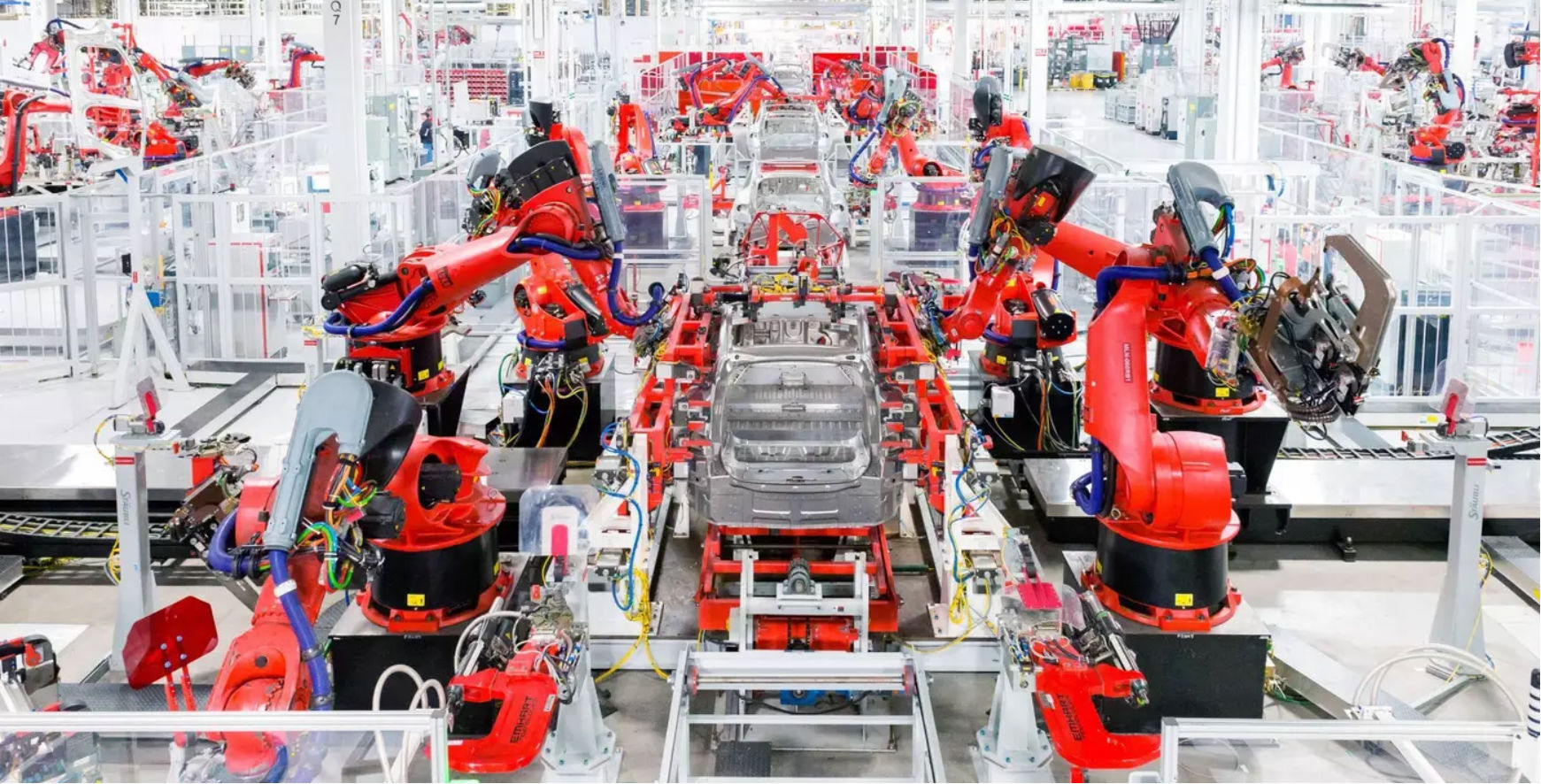
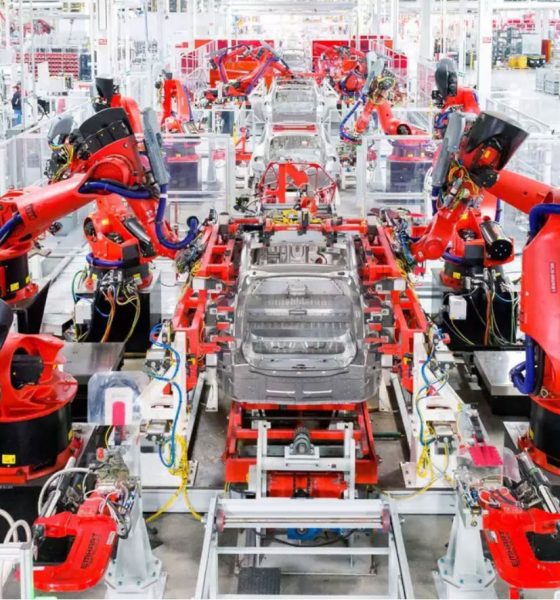
Investor's Corner
Tesla’s 3rd-largest shareholder discusses legacy auto’s ‘Kodak moment’
Amidst Tesla’s continuous rise, its disruption of the car industry is becoming more prevalent. This point was reiterated recently by a major Tesla shareholder, who noted that legacy automakers, with their decades of experience, might be facing their very own “Kodak moment.”
In a recent statement to Morningstar UK, Baillie Gifford manager Iain McCombie remarked that Tesla’s immense growth and potential remains remarkable. McCombie noted that despite short-term noise about Model 3 production, volume is beginning to come through, as evidenced by the company’s pleasantly surprising third-quarter results. The Baillie Gifford executive added that Tesla had already surpassed Daimler’s car sales in the US — a feat that seemed impossible just a few years ago.
“Now, Daimler’s been in the market for 100-plus years and here’s this upstart and they’re outselling them in the US. If you’d said that a few years ago, you’d probably have been locked up, but that’s happening,” he said.
While McCombie admitted that Baillie Gifford might be wrong about its optimistic outlook on Tesla, the finance veteran stated that at this point, it is legacy automakers that are currently feeling the pressure. With the success of Tesla and the apparent strong demand for electric vehicles, veteran carmakers are at risk of losing a core part of their business — the internal combustion engine. McCombie noted that this is reminiscent of what Kodak faced during the advent of the digital camera.
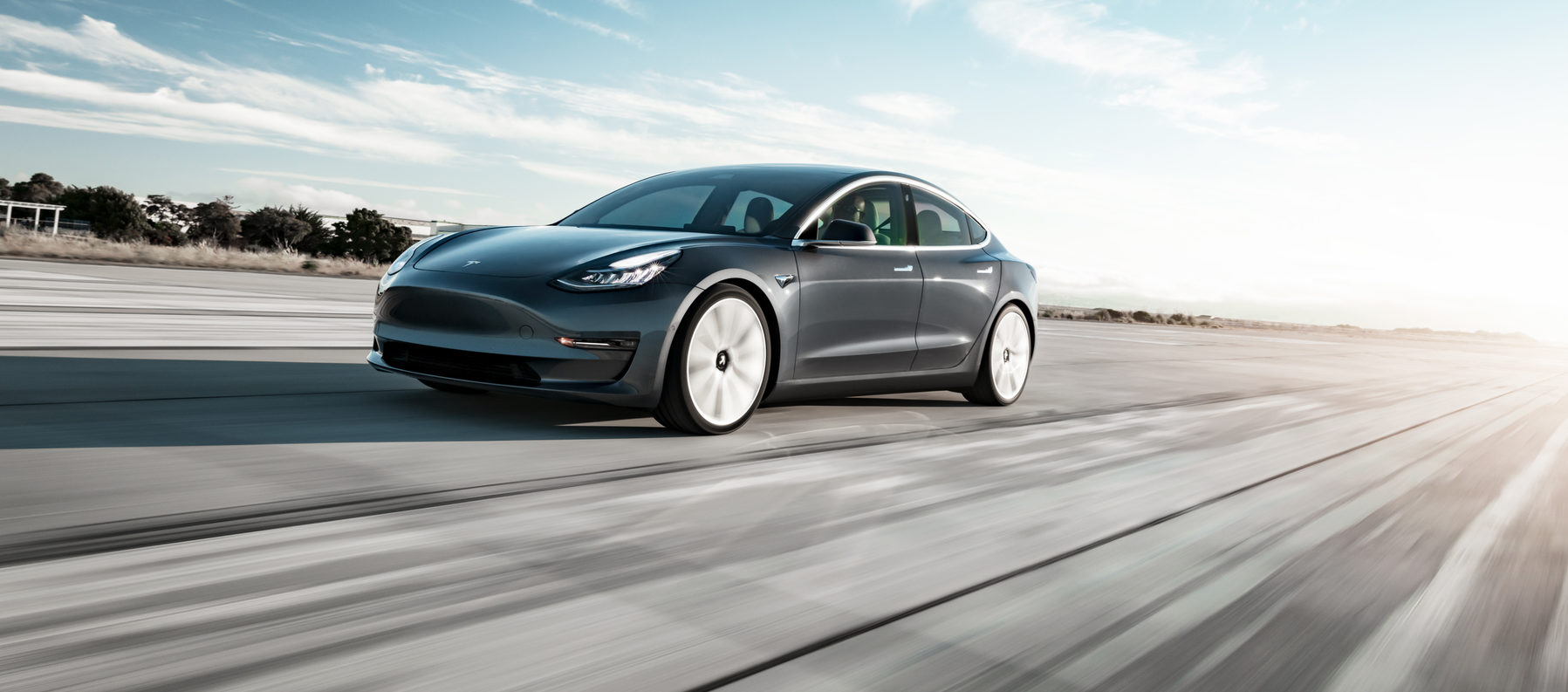
“They spent hundreds of years building up their know-how in industrial combustion engines, and they do a great job with that, but what happens if all of us are suddenly saying ‘oh, I want an electric car’? Suddenly, that know-how is useless. What happened with Kodak is they actually discovered the digital camera, but they buried it because it was too frightening for them. They thought it would kill their film business. But the fact that they didn’t innovate killed Kodak,” he said.
Faced with their very own “Kodak moment,” the Baillie Gifford manager stated that veteran carmakers, at least for now, remain centered on their legacy products. Amidst a market that is changing its preference, though, traditional auto is running the risk of being pushed out during the transition.
“Maybe they are launching electric vehicles, but the bulk of their sales are still coming from legacy products. They’ve built wonderful businesses for themselves, but what happens when the business is changing? That’s why your Tesla is exciting, because they don’t have those legacy issues,” McCombie said.
Baillie Gifford is among Tesla’s largest shareholders, third only to Elon Musk and T. Rowe Price. As of September, Baillie Gifford held a 7.8% stake at the electric car maker.
The absence of compelling electric vehicles from Tesla’s competitors was a key driver for some skeptics when they changed their stance on the company. Ahead of Tesla’s third-quarter earnings call, for one, Andrew Left of Citron Research, one of the electric car maker’s most vocal critics, turned bullish on the company, citing the dominance of the Model 3 in the US passenger car market. Left also noted that there is no “Tesla Killer” coming from rival automakers.
- The Jaguar I-PACE.
- The new Mercedes-Benz EQC – the first Mercedes-Benz under the product and technology brand EQ. With its seamless, clear design, the EQC is a pioneer for an avant-garde electric look with trailblazing design details and colour highlights typical of the brand both inside and out. [Credit: Mercedes-Benz]
- The Audi e-tron. (Credit: Audi)
Brad Cornell, a hedge fund manager who believes that Tesla is overvalued, recently admitted that he had overestimated the company’s competition as well. Cornell admitted that in his past analyses and forecasts, he did not expect Tesla’s competition to roll out electric vehicles in such a slow manner. Apart from this, Cornell noted that legacy auto’s entries into the zero-emissions market have been largely uninspired. As such, vehicles like Teslas, which are green, attractive, and powerful, are becoming the EVs of choice for customers looking to buy an electric car.
“One thing I did not evaluate accurately when I began constructing valuation models for Tesla in early 2014 was how slow the competition would be to produce electric cars that people would want to drive. Tesla competitors, to the extent that any appeared, seemed to be saying that the point of an electric car was to be green and efficient, not sexy or exciting. Only Tesla had the design, the pizzazz, and the performance to make driving special and not a chore.
“My mistake in 2014 was thinking that competition for Tesla was just around the corner. Now, at the end of 2018, it is still just around the corner. Although Jaguar has been promising the I-PACE for some time, my visits to dealers have been rewarded only with promises. The same is true for the Porsche Taycan. There is not a meaningful Tesla competitor available today or in the near future,” Cornell said.
Tesla, for its part, continues to move forward. In Elon Musk’s recent interview with Kara Swisher at the Recode Decode podcast, the Tesla CEO stated that Tesla would be cash-flow positive in all quarters moving forward. Musk was also optimistic about Model 3 production, stating that Tesla is currently capable of producing 6,000-6,500 units of the electric sedan per week, though it would require employees to do a lot of overtime.

Elon Musk
Tesla stock gets latest synopsis from Jim Cramer: ‘It’s actually a robotics company’
“Turns out it’s actually a robotics and Cybercab company, and I want to buy, buy, buy. Yes, Tesla’s the paper that turned into scissors in one session,” Cramer said.

Tesla stock (NASDAQ: TSLA) got its latest synopsis from Wall Street analyst Jim Cramer, who finally realized something that many fans of the company have known all along: it’s not a car company. Instead, it’s a robotics company.
In a recent note that was released after Tesla reported Earnings in late January, Cramer seemed to recognize that the underwhelming financials and overall performance of the automotive division were not representative of the current state of affairs.
Instead, we’re seeing a company transition itself away from its early identity, essentially evolving like a caterpillar into a butterfly.
The narrative of the Earnings Call was simple: We’re not a car company, at least not from a birds-eye view. We’re an AI and Robotics company, and we are transitioning to this quicker than most people realize.
Tesla stock gets another analysis from Jim Cramer, and investors will like it
Tesla’s Q4 Earnings Call featured plenty of analysis from CEO Elon Musk and others, and some of the more minor details of the call were even indicative of a company that is moving toward AI instead of its cars. For example, the Model S and Model X will be no more after Q2, as Musk said that they serve relatively no purpose for the future.
Instead, Tesla is shifting its focus to the vehicles catered for autonomy and its Robotaxi and self-driving efforts.
Cramer recognizes this:
“…we got results from Tesla, which actually beat numbers, but nobody cares about the numbers here, as electric vehicles are the past. And according to CEO Elon Musk, the future of this company comes down to Cybercabs and humanoid robots. Stock fell more than 3% the next day. That may be because their capital expenditures budget was higher than expected, or maybe people wanted more details from the new businesses. At this point, I think Musk acolytes might be more excited about SpaceX, which is planning to come public later this year.”
He continued, highlighting the company’s true transition away from vehicles to its Cybercab, Optimus, and AI ambitions:
“I know it’s hard to believe how quickly this market can change its attitude. Last night, I heard a disastrous car company speak. Turns out it’s actually a robotics and Cybercab company, and I want to buy, buy, buy. Yes, Tesla’s the paper that turned into scissors in one session. I didn’t like it as a car company. Boy, I love it as a Cybercab and humanoid robot juggernaut. Call me a buyer and give me five robots while I’m at it.”
Cramer’s narrative seems to fit that of the most bullish Tesla investors. Anyone who is labeled a “permabull” has been echoing a similar sentiment over the past several years: Tesla is not a car company any longer.
Instead, the true focus is on the future and the potential that AI and Robotics bring to the company. It is truly difficult to put Tesla shares in the same group as companies like Ford, General Motors, and others.
Tesla shares are down less than half a percent at the time of publishing, trading at $423.69.
Elon Musk
Tesla to a $100T market cap? Elon Musk’s response may shock you

There are a lot of Tesla bulls out there who have astronomical expectations for the company, especially as its arm of reach has gone well past automotive and energy and entered artificial intelligence and robotics.
However, some of the most bullish Tesla investors believe the company could become worth $100 trillion, and CEO Elon Musk does not believe that number is completely out of the question, even if it sounds almost ridiculous.
To put that number into perspective, the top ten most valuable companies in the world — NVIDIA, Apple, Alphabet, Microsoft, Amazon, TSMC, Meta, Saudi Aramco, Broadcom, and Tesla — are worth roughly $26 trillion.
Will Tesla join the fold? Predicting a triple merger with SpaceX and xAI
Cathie Wood of ARK Invest believes the number is reasonable considering Tesla’s long-reaching industry ambitions:
“…in the world of AI, what do you have to have to win? You have to have proprietary data, and think about all the proprietary data he has, different kinds of proprietary data. Tesla, the language of the road; Neuralink, multiomics data; nobody else has that data. X, nobody else has that data either. I could see $100 trillion. I think it’s going to happen because of convergence. I think Tesla is the leading candidate [for $100 trillion] for the reason I just said.”
Musk said late last year that all of his companies seem to be “heading toward convergence,” and it’s started to come to fruition. Tesla invested in xAI, as revealed in its Q4 Earnings Shareholder Deck, and SpaceX recently acquired xAI, marking the first step in the potential for a massive umbrella of companies under Musk’s watch.
SpaceX officially acquires xAI, merging rockets with AI expertise
Now that it is happening, it seems Musk is even more enthusiastic about a massive valuation that would swell to nearly four-times the value of the top ten most valuable companies in the world currently, as he said on X, the idea of a $100 trillion valuation is “not impossible.”
It’s not impossible
— Elon Musk (@elonmusk) February 6, 2026
Tesla is not just a car company. With its many projects, including the launch of Robotaxi, the progress of the Optimus robot, and its AI ambitions, it has the potential to continue gaining value at an accelerating rate.
Musk’s comments show his confidence in Tesla’s numerous projects, especially as some begin to mature and some head toward their initial stages.
Elon Musk
Tesla director pay lawsuit sees lawyer fees slashed by $100 million
The ruling leaves the case’s underlying settlement intact while significantly reducing what the plaintiffs’ attorneys will receive.

The Delaware Supreme Court has cut more than $100 million from a legal fee award tied to a shareholder lawsuit challenging compensation paid to Tesla directors between 2017 and 2020.
The ruling leaves the case’s underlying settlement intact while significantly reducing what the plaintiffs’ attorneys will receive.
Delaware Supreme Court trims legal fees
As noted in a Bloomberg Law report, the case targeted pay granted to Tesla directors, including CEO Elon Musk, Oracle founder Larry Ellison, Kimbal Musk, and Rupert Murdoch. The Delaware Chancery Court had awarded $176 million to the plaintiffs. Tesla’s board must also return stock options and forego years worth of pay.
As per Chief Justice Collins J. Seitz Jr. in an opinion for the Delaware Supreme Court’s full five-member panel, however, the decision of the Delaware Chancery Court to award $176 million to a pension fund’s law firm “erred by including in its financial benefit analysis the intrinsic value” of options being returned by Tesla’s board.
The justices then reduced the fee award from $176 million to $70.9 million. “As we measure it, $71 million reflects a reasonable fee for counsel’s efforts and does not result in a windfall,” Chief Justice Seitz wrote.
Other settlement terms still intact
The Supreme Court upheld the settlement itself, which requires Tesla’s board to return stock and options valued at up to $735 million and to forgo three years of additional compensation worth about $184 million.
Tesla argued during oral arguments that a fee award closer to $70 million would be appropriate. Interestingly enough, back in October, Justice Karen L. Valihura noted that the $176 award was $60 million more than the Delaware judiciary’s budget from the previous year. This was quite interesting as the case was “settled midstream.”
The lawsuit was brought by a pension fund on behalf of Tesla shareholders and focused exclusively on director pay during the 2017–2020 period. The case is separate from other high-profile compensation disputes involving Elon Musk.
